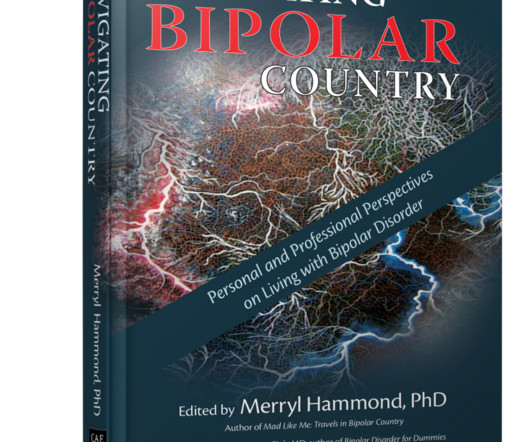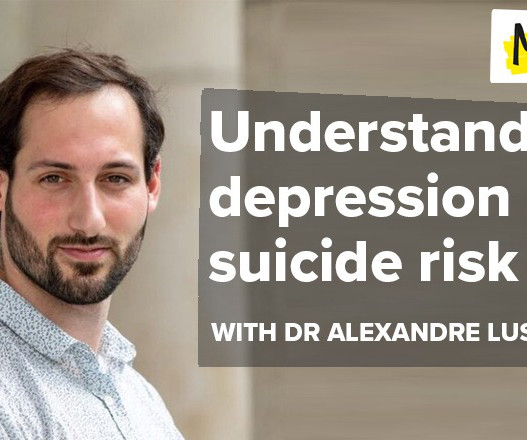Guest Post: Interview with Merryl Hammond, PD; Author of Mad Like Me and Navigating Bipolar Country
Bipolar Bandit
APRIL 12, 2023
Interview with Merryl Hammond, PhD, Editor of Navigating Bipolar Country and author of Mad Like Me Q: To start, could you tell us a bit about your background and work, Merryl? I had zero mental health issues for the first fifty-plus years of my life… Q: When did you first experience bipolar disorder? A few days into the crisis, BANG!



















Let's personalize your content